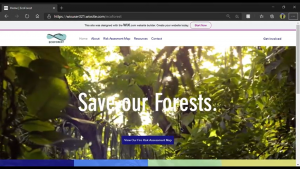 During the recent 2020 Summer I term, Dirk VandePol and Gwen Huber used an interdisciplinary group project and virtual poster session in their web-based BIOL 111 course to help their students see how the course content was relevant to their lives.
During the recent 2020 Summer I term, Dirk VandePol and Gwen Huber used an interdisciplinary group project and virtual poster session in their web-based BIOL 111 course to help their students see how the course content was relevant to their lives.
As Dirk explains, the goal of this assignment was to “give students as much of a taste of biology’s absurdly rich smorgasbord of topics and stories as possible in the time permitted, and to give them the freedom to take their favorite topical steam tray out of that smorgasbord, take it back to their e-table, and chow down with their friends, and then take biology-food pictures of their experience, and share them on Instagram with their Bio-foodie classmates.”
No face-to-face meetings in the age of COVID-19? No problem! Dirk and Gwen worked together to redesign the project and presentation structure so that students could complete it online. Keep reading to learn more about the assignment, how it was modified for the remote classroom, and to see some examples of the student-produced projects.
What was the idea behind this assignment?
BIOL 111 is a course whose description on the UBC website states “Concepts fundamental to biological issues” – and I interpret that as, “cover all of the key concepts of biology to non-majors in a single term”. It’s really an impossible task, though the attempt is always pretty fun.
Add to that the fact that life science students constitute a very small minority of the population of students in the class; in most terms about 5-10%. This summer, total combined biology and microbiology students totaled zero according to my poll. Many of the students come from other sciences; the largest contingent is usually Computer science, which can be as high as 40% of the class. But really, the students come from faculties all over the school.
This adds up to tremendous academic diversity, and it’s a tremendous resource for a group project. It took me a term or two to realize what an asset this was, another term to get ideas about how to utilize it, and yet another to marshal the courage to try them. When I finally got things going, it was a pretty straightforward group assignment, proceeding thusly:
- Choose whatever biology-related topic you want, and join a group to learn about it, and do a project about it, such as “endangered species”, “mollusk intelligence”, “masks, ventilators, and Covid-19”,
- Do basically whatever you want to do for a project – for example, “make a lesson plan”, “make a website”, “save the world”, etc.
- Make a poster telling your fellow students about your topic, and the project you did.
- Have a big poster session in the last week of class, where half of each group stands by their poster explaining it, and the other half mills about hearing other groups talk about their projects, and then halfway through class they switch.
- Then reflect on what was learned from other groups’ presentations, and from whole experience.
To that time-worn format we did add one original idea; that is, for each student to “role play”:
- Each member adopts a unique role within their group, a profession or other role, presumably related to their chosen major, such as “lawyer”, “entrepreneur”, “graphic designer”, “hacker”, “stats geek”, etc., to bring their own talents of their own field to bear on the project, whatever it may be.
How were you able to modify the assignment for the online course format?
Since the students couldn’t meet the other members of their group, most of the final projects which could be made became logistically impossible, so Dr. Huber suggested we change the project to “project plan”. I think, if anything, that was an improvement – real, substantial projects were often unrealistic, and could balloon into projectzillas pretty easily. And, if the students are primarily first-years, the important part of the project is to dream big, and when all you’re doing is dreaming and planning, your dreams need not be limited by the surly bonds of reality.
And, since they couldn’t have a face-to-face poster session, we told the students to make a PowerPoint, and then go to Zoom or whatever, and record their voices presenting their work. Then their “talking poster” files were posted on Piazza for all the students to attend an asynchronous “virtual poster day”. They commented on each other’s posters and shared reflections about the whole experience as a final part of the assignment.
How did the students react to the group assignment?
They liked it, mostly, both this term and last, with ~75% agreeing that they learned a lot and were interested by their topic in the end-of-term survey. It’s worth noting that the one original part of it, the role playing, didn’t do any better statistically than any other part of the project. Some students did comment on it positively, though. Quoth one:
“Splitting the group into “roles” was a very immersive experience, as it allowed me to feel like I was working on small scale biology team. It also allowed me to focus more specifically and dive into at the role I was assigned, rather than forcing me to get shallow learning over a broader range of topics.”
What was your response to the students’ submissions?
While it’s really gratifying to see students’ work – they look really good this term, despite the circumstances – we can get an even better window into what students learn, about their own project, and about the groups whose projects they visit, by reading their reflections. When students share what they learned from the projects, and their personal experience of learning, that’s when you can get the happy buzz that teachers get when they’re confident their students learned something.
Is there anything else you’d like to share?
Well, how about their work? We’d like to share that:
(Note: permission to share was obtained from students)
- “BC coastal Plants”: https://www.youtube.com/watch?v=f2dYfYYC_Is&feature=youtu.be
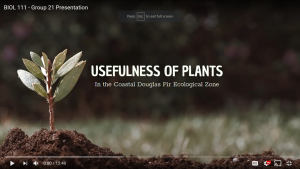
- “Exobiology”: https://www.instagram.com/p/CBXLGL7DVii/
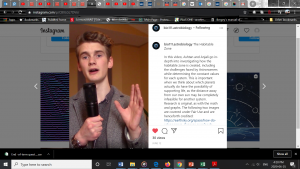
- “ CRISPR CAS-9 and disease treatment”: https://www.youtube.com/watch?v=kgmDmboSGWM&feature=youtu.be
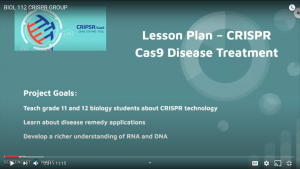
- “Mollusk intelligence” https://d1b10bmlvqabco.cloudfront.net/paste/k064i08vitq1te/04b69a8525e427aa8fca6b8af37166138eb9a5861bdc4378da27b8d42bc27bdc/Octopus_Intelligence.mp4
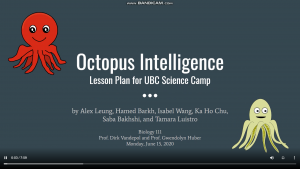
- “DNA computing” https://www.youtube.com/watch?v=rE2ad5pmXfM&feature=youtu.be
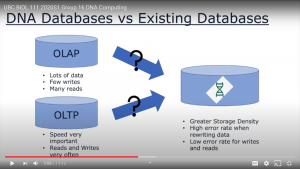
- “How to destroy a coronavirus particle”: https://www.youtube.com/watch?v=FfYrK4JJNj4&feature=youtu.be
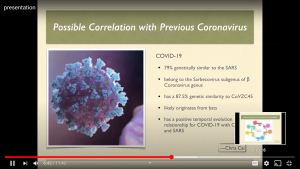
- “Covid-19 Ventilators, masks, and ecology”: https://www.youtube.com/watch?v=KtAM9mWVitE&feature=youtu.be
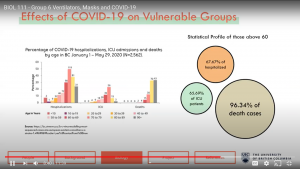
- “Organs R Us”: https://www.youtube.com/watch?v=syxYKCnqzSs&feature=youtu.be
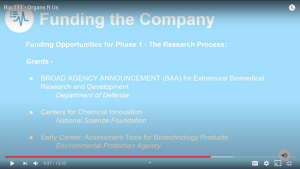 =
=
- “Evolution of whales”: https://drive.google.com/file/d/1bFnnzPo_DyTg1HafQjb7BP2X4Qw77v_D/view
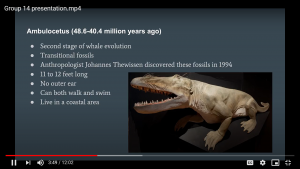
- “Forest fire ecology”: https://www.youtube.com/watch?v=ZJD_OuRsCzw&feature=youtu.be
